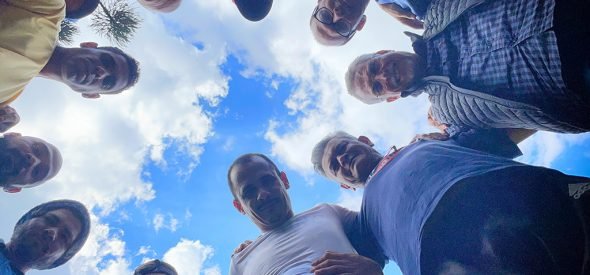In early 2021 I felt the Lord leading me to learn more about childhood trauma and it’s long term impact on people. I’ve taken a few courses, read several books, and become more familiar with the lasting damage that trauma, especially in childhood, can cause.
In the process I came across the Adverse Childhood Experiences (ACE) index. These are potentially traumatic experiences which can have negative and lasting effects on adult health and well being. These may include but are not limited to emotional, physical, or sexual abuse; violence against a caregiver; or living with household members who were substance abusers, mentally ill, suicidal, criminal or imprisoned.
If you grew up in a safe and secure home, with loving, mature parents, you would score very low on the ACE index. And just as likely you might find it hard to understand why many fall into substance abuse or criminal activity. If, on the other hand you grew up with enough adverse childhood experiences, and came to understand the disruption those experiences have on actual brain development along with the cognitive abilities and social skills needed to move onward and upward in society, you would have a better understanding of just why so many who grew up in violent and abusive homes wound up following the same dark path in their lives.
You can read more about the ACE index and take the test for yourself here. I also urge you to watch this brief six minute video “Step Inside the Circle” in which a group of inmates in a California prison discover how so many of them grew up in violent and abusive homes and the effect that had on their adult lives. And then go on to realize how their common bond can actually be a pathway to healing for all of them.
I’m sharing this with you today, this last day of 2021 as I want you to understand a little better why I am so passionate about our ministry with the homeless and chemically dependent. I always knew this was a special tribe, a community, a people with a common bond. A lot of it I already understood, but in this past year so much of it has come together and helped me understand why this special tribe of people need and deserve the help we are giving them.
Earlier this December I was invited to speak at a treatment center in the state of Paraná, in southern Brazil. It’s about two hours outside the state capital, Curitiba. After a couple of days of Bible studies I decided to do a simpler version of the “step inside the circle” activity shown in the video above.
I only asked about a dozen questions from the ACE index. Questions like “Before your 18th birthday, did you ever hear or see someone living in your home being yelled or screamed at, cursed, insulted or humiliated?,” “Before your 18th birthday, did you ever hear or see someone living in your home being kicked, beaten, or whipped?,” “Before your 18th birthday, did one of your parents or guardians yell, scream at, curse, insult, or humiliate you?”.
With each question one or more and many times most of the men who are in the drug rehabilitation center stepped further into the circle. Imagine growing up in a “home” where you lived with that kind of violence and abuse on a regular basis.
At the end with the men gathered together, I reminded them that none of what happened to them growing up gives them an excuse for using drugs or committing crime. But it does show us two things: they are not by their very nature “bad” people. They suffered bad experiences. And they have made bad choices in part because of the impact of those experiences.
But in the same way their early environment (what they heard and saw and came to believe) had an impact on them, the choices they make now, to listen to and learn from God’s word, and from the godly men He has put in their lives, and to no longer believe the lies they were told about their lack of self worth, but to believe in their immeasurable worth as children of God, how all these things can also turn everything else around.
And the second thing that’s just as important at centers like this one, is to realize they have a common bond with all the other men there. One of the biggest challenges in helping men from this kind of background is in fostering a sense of community and solidarity. Helping them understand the other men sitting beside them went through the same horrific upbringing as they did goes a long way to helping bond these men together to foster the sense of community that is such a vital part of the Lord’s church.
Adverse childhood experiences may have induced us into a circle of sinful attitudes and reactions. But we can choose through Jesus’ love for us, to join others in the circle of Christian fellowship, where we are wanted and where we truly belong. And that, dear friends, is very good news.
Please continue to pray for the work the Lord is doing in centers like this one inland in Paraná, our partners at Christland and other faith-based organizations like the Compassion Prison Project. And thank you so much for believing in, praying for, and supporting the work we are doing.



